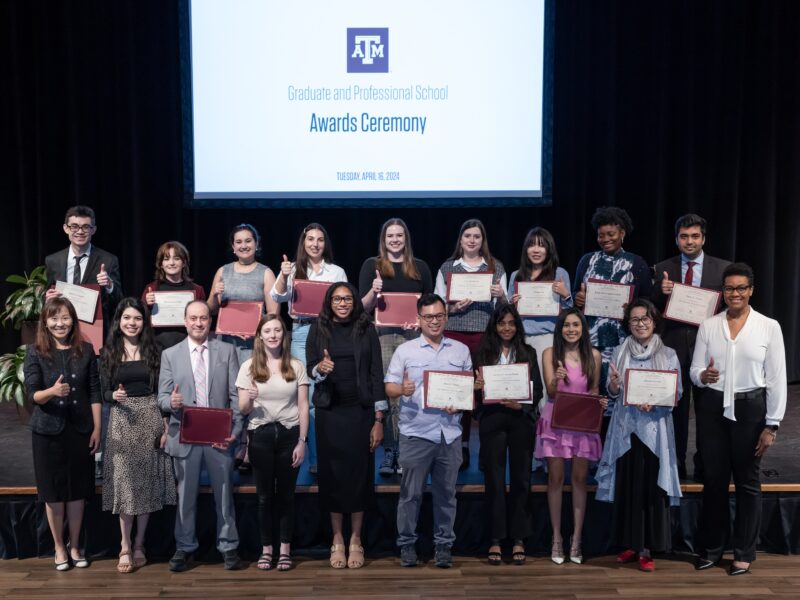TAMHSC Prof’s Idea Becomes A Business Venture

An ergonomic engineer by trade, Mark Benden, Ph.D., CPE, is always on the lookout for the latest and greatest innovative solutions to solve some of the most complex public health issues. Ten years ago, Benden developed workstations that would allow productivity while combating sedentary lifestyles – and so the idea of stand-biased desks was born.
Benden, an associate professor at the Texas A&M Health Science Center School of Rural Public Health, initially studied the health benefits of standing at work through the use of height adjustable tables and stand-up desks for adults. He found the most sedentary adults in the office were also the most obese. The research resulted in his theory of technology induced inactivity which led to early iterations of Benden’s first stand-biased desks.
He conducted a pilot study in 2009 in first-grade classrooms at College Hills Elementary in College Station, Texas, to determine the effects of standing-height desks on children. Findings indicated higher levels of calorie expenditure in students using stand-biased desks.
In the fall of 2011, PositiveMotion received a $150k Small Business Innovation Research grant to fund the development of Stand2Learn, an offshoot company designed to develop the classroom version of the stand-biased desks. In 2012, the company also received a startup fund investment from the Aggie Angel Network.
In October, Stand2Learn received a $1 million grant from the CDC that will enable the team to conclude research on middle and high school students, while developing the next generation of patented desk designs.

Benden received his Bachelor of Science Degree in Biomedical Engineering from Texas A&M University. He also received his Master of Science Degree in Industrial Engineering with a specialization in Ergonomics and a minor in Safety Engineering from Texas A&M University and his PhD in Interdisciplinary Engineering at Texas A&M.
As a commissioned Officer in the United States Army Reserve, he served on active and reserve duty with the Corps of Engineers and as an enlisted, combat medic with the Texas Army National Guard. His civilian career includes experience as a Rehabilitation Engineer, an Ergonomic Consultant, a plant Ergonomic Engineer, a corporate Ergonomist for Johnson & Johnson Inc., Executive Vice President for Neutral Posture, Inc. in Bryan, Texas, and most recently named Assistant Professor, Texas A&M Health Science Center,School of Rural Public health,Department of Environmental and Occupational Health
Benden is the author of several articles and book chapters on Ergonomics and has been called upon to lecture at multiple professional groups throughout the United States, Canada, the Caribbean and Central America. He also holds 18 US Patents for current ergonomic office products and has many patents pending.
Benden received certificate #706 from the Board of Certification in Professional Ergonomics Inc. as a Certified Professional Ergonomist. He is an active member of the Institute for Industrial Engineers, The American Society of Safety Engineers and the Human Factors and Ergonomics Society. Mark claims his greatest achievement was convincing his wife of 23 years, Teresa, to marry him. This union resulted in them being blessed with 3 wonderful sons, Travis, Justin and Luke.
Media contact: tamunews@tamu.edu.





